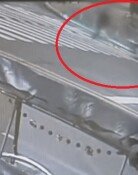[Op-Ed] Arrest Warrant
The popular historical TV drama Queen Seondeok often features the term chupo, referring to the pursuit and capture of a criminal. The modern equivalent of the term is arrest. In the time of the ancient Shilla kingdom, when the queen ruled, the legal process for chupo was apparently lacking. Misil, the royal concubine of a former king, ordered the arrest of Seondeok, who went by her maiden name Mandeok at the time. Mandeoks supporters demanded an arrest document from Misil bearing the kings seal. The accusers backers instead had the military commander Kim Yu-shin arrested on a treason charge without an official document. At the time, he was on a scouting mission in the neighboring Baekje kingdom.
The warrant that Mandeoks supporters requested is similar to the arrest warrant issued by judges. Kim was apparently arrested without a warrant. In the drama, Mandeok boldly responds to the unjust attempt at her arrest by voluntarily appearing before Misil to take her head on. An embarrassed Misil concedes defeat and kills herself. Despite growing calls from Misil supporters to have Kim beheaded, he instead devises a strategy while in prison to defend Shilla from Baekje. Korean audiences watching the drama have been deeply touched by the sincerity and honesty of Mandeok and Kim.
Prosecutors and members of a committee under the Roh Moo-hyun Foundation are locking horns over the bribery allegation facing former Prime Minister Han Myeong-sook. The situation is as tense as in Queen Seondeok. What happens in the drama is fiction, however. Hans attitude appears not as dignified as those of Mandeok and Kim. Hans supporters seek to hide the truth by blasting the investigation as politically motivated. Though prosecutors have obtained an arrest warrant for Han after she snubbed two summonses for questioning, they still want her to appear voluntarily. The ball is now in Hans court.
Attention is on whether Han will keep her reputation and dignity as a former prime minister instead of whether she received 50,000 U.S. dollars in bribes from a businessman. If the investigation is politically driven as she claims, she can prove it by speaking to prosecutors. Proclaiming her innocence despite refusing to appear for questioning is irrational. Many former and incumbent politicians and high-ranking officials used the same strategy, but eventually ended up in court. Hans dare to prosecutors to issue an arrest warrant for her right away is a vain attempt to paint herself as a victim. This move will not win public support, however.
Editorial Writer Yook Jeong-soo (sooya@donga.com)







